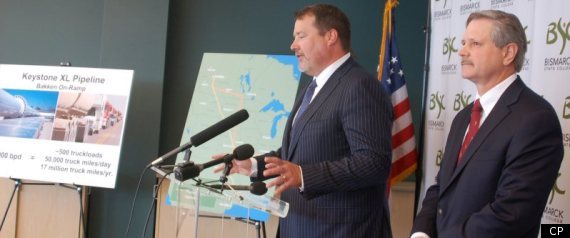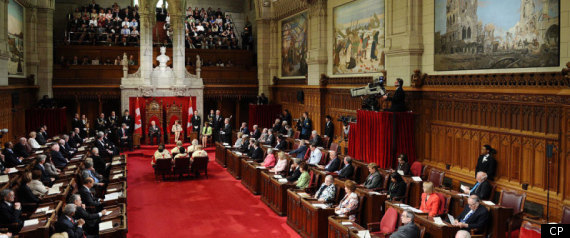Last week’s explosive news story that the governing Conservatives could be responsible for voter suppression during the last election campaign “will be their demise,” says an opposition MP, but one of the country’s leading pollsters can’t see any of it sticking.
“This is the kind of thing that brings governments down,” NDP MP Pat Martin (Winnipeg Centre, Man.) told The Hill Times. “The number of indiscretions has reached critical mass but the difference between this issue and previous indiscretions is that it’s so easy to understand. This is an issue of basic fairness. The in and out scandal was a complicated financial transaction that takes awhile to explain. This one, you know, any school kid could understand. It’s wrong to lie to people for your own self interest. It sullies our democracy. It speaks to a conspiracy to defraud.”
Mr. Martin in a press conference last week called the issue the Conservatives’ “Groupe Action,” referring to the Liberal sponsorship scandal in the early 2000s, and taking it further, he said it was Prime Minsiter Stephen Harper’s (Calgary Southwest, Alta.) “Watergate.”
“This will be their demise. I absolutely believe this will be the demise of the Harper Conservatives because it reveals their true nature and character and it’s so distasteful that Canadians will recoil with revulsion,” he said.
But Nanos Research pollster Nik Nanos said the Conservatives have had to deal with a number of other scandals and know how to manage them. More importantly, he said this won’t bring down the government unless there’s a direct connection to the Prime Minister.
“I think for Canadians that are sensitive to these types of things, it’s just another example of a pattern of behaviour with the Conservatives. In terms of their popular support, I can’t really see this having a significant impact because the reality is this particular issue doesn’t touch the Prime Minister at all,” Mr. Nanos told The Hill Times. “I think that’s one of the reasons the Conservatives have been able to weather the storm on a lot of other issues.”
In addition, he said, there’s a lot of Canadian cynicism toward politics today that won’t move any numbers. “I would expect that most people believe that all the parties engage in a lot of these unsavoury activities in one way or another,” he said. “A lot of this has to do with the level of cynicism that exists out there. … It doesn’t move the numbers as much.”
Postmedia’s Stephen Maher and the Ottawa Citizen’s Glen McGregor broke the story of the robocalls on Feb. 23. Mr. Maher told The Hill Times he was looking into live, deceptive calls that were being made. Months later, Mr. McGregor began looking into “dirty tricks” allegations against the Conservative party in the riding of Liberal incumbent Irwin Cotler (Mount Royal, Que.). By Christmas, the wheels had started moving, but things kicked into high gear last month, said Mr. McGregor.
“Over months we interviewed Liberals, Conservatives, New Democrats, Greens, volunteers, people who work in the electoral robo-dial business, party organizers, activists, candidates, campaign managers. We used Access to Information requests, we created a spreadsheet of instances of this, looking for a pattern, and we developed, eventually, some confidential sources who were able to help us put the pieces together,” Mr. Maher said.
While Mr. Maher said he is a “real source guy,” Mr. McGregor said he is more of a “data-geek,” and the two essentially spearheaded their respective areas of expertise in putting together the story, though there was plenty of crossover.
“We used Elections Canada records, we both did a lot of interviewing, and obviously there’s some key sources involved who really helped us nail it down,” said Mr. McGregor. “We interviewed so many people who worked on so many different campaigns, in different ridings, that it became a huge data management job.”
Putting together their research involved hundreds of pages of documents, like phone records, and the pair eventually assembled a massive spreadsheet to connect each riding with corresponding allegations, said Mr. McGregor.
Mr. McGregor said the ATIP request from Elections Canada that was referenced in their first, breaking, story was actually filed by someone else. The pair had been looking to file their own ATIP request when they noticed that one asking about all email traffic on election day had already been released.
In the course of developing their story, the pair did file ATIP requests of their own but they haven’t received a response yet, said Mr. McGregor.
This is the third project the pair have tackled together—they first worked together while Mr. Maher was still working for the Halifax Chronicle.
Mr. Maher said this is among the most important stories he’s covered, but in terms of explosiveness he said it was on a similar scale to a story he wrote about Lisa Raitt having called the isotope shortage crisis “sexy.”
Mr. McGregor said this story is tied in terms of importance with his writing on the in-an-out scandal that rocked Parliament last year.
“The story landed on the Thursday of an off-week so it got a tremendous amount of media pick-up, which we always like. Lots of other people got into the story, we immediately had reactions from the Prime Minister, from the Conservative party, from the Opposition parties as well…I guess if you want to get reaction to a political story, that was about as good as we can hope for,” said Mr. McGregor. “It certainly made a splash.”
Mr. Maher and Mr. McGregor found that Elections Canada received complaints about automated calls on May 2, election day, last year. Voters in as many as 18 ridings received phone messages from a service pretending to be calling on behalf of Elections Canada, telling them that their polling station had been moved, and misdirecting people to a new location. Once they got to the new location and realized there was no polling station, some voters likely didn’t bother to go to the real polling station.
The calls seem to have been targeted at Liberal and NDP voters in hotly-contested ridings that the Conservatives were hoping to take from incumbents. Voters have also complained about being inundated with annoying or harassing pro-Liberal or NDP calls at all hours of the day.
Elections Canada launched an investigation into the robocalls’ source. They have been traced back to an Edmonton-based company called RackNine, an automated phone messaging service that has been affiliated with the Conservative Party’s national campaign, and the local campaigns of at least 12 candidates. Some of them included the campaigns of Prime Minister Stephen Harper (Calgary Southwest, Alta.), Public Works Minister Rona Ambrose (Edmonton-Spruce Grove, Alta.), Minister of State for Democratic Reform Tim Uppal (Edmonton-Sherwood Park, Alta.) and Citizenship and Immigration Minister Jason Kenney (Calgary Southeast, Alta.), among others, according to Elections Canada records. It was employed to do advertising, conduct surveys and do tele-town halls.
RackNine CEO Matt Meier said last week that he had no idea his company was being used as a vehicle for impersonating Elections Canada. Mr. Meier also stated that whoever was behind the robocalls attempted to hide their identity from his company, and that the company doesn’t monitor its outgoing calls. He also said that he knows which account was used for the calls, and who it belongs to, but would not reveal the owner due to privacy concerns and fear of interfering with the official investigation, according to the Postmedia/Citizen story.
The Prime Minister said last week that he and his party had “no knowledge of these calls.”
The Conservatives have launched their own investigation, reportedly led by their lawyer Arthur Hamilton.
Jenni Byrne, the Conservatives’ 2011 national campaign director, said in a statement last week that the party “was not involved with these calls and if anyone on a local campaign was involved they will not play a role in a future campaign.” In addition, she said her party ran a “clean campaign.”
“Voter suppression is extremely serious and if anything improper occurred those responsible should be prosecuted to the full extent of the law,” Ms. Byrne said in a statement.
QMI Agency reported last week that the Conservatives have singled out Michael Sona, a staffer who worked on the campaign of Tory Guelph candidate Marty Burke, who ran against Liberal MP Frank Valeriote, who was re-elected. Mr. Sona now works for Conservative MP Eve Adams (Mississauga-Brampton South, Ont.). Mr. Sona was let go from his job on Friday.
Mr. Martin said the Conservatives are doing everything to throw “some kid” under the bus and doesn’t believe for a second that it was a “rogue” staffer. “It’s just not plausible. Where would they the voters’ list?” he said.
“They’ve found a 23-year old who’s dispensable,” Mr. Martin said. “That’s not good enough this time. Nobody believes that an over enthusiastic 23-year-old devised this scheme.”
He noted that when police do an investigation they look for motive and opportunity in suspects. Mr. Martin said he believes the Conservatives had both.
“Political parties don’t just track their own supporters in an election campaign. They also track where the opponents live,” he said, pointing out that his own campaign had a system of tracking support that his team coded from one to four.
He explained that ones meant they were NDP supporters and would vote for him. Twos meant he had their support in the past and was likely to vote for him. Three meant they most likely were not NDP supporters and would vote for someone else, and the four meant “I’m a Conservative and I’m voting for a Conservative and I will never vote for you.”
He said using this system, it would be easy to do a robocall to the people on the number four list and direct them to the wrong polling station. “That would be a really dirty trick. That would be indescribably sleazy and apparently that’s what they did on a massive scale right across the country,” he said.
Liberal MP John McCallum (Markham-Unionville, Ont.) said at a press conference last week that the calls affected a number of competitive Liberal ridings and that the Conservatives were the only ones to gain from them.
“We don’t have a smoking gun pointing to Stephen Harper and to the Conservative Party, but we do know that these actions benefited the Conservative Party and we do know this strategy has been in their tool kit for some time. So there are definitely suspicions,” said Mr. McCallum.
Mr. McCallum said it’s important to get all the facts and prevent something like this from happening again. “Even if it’s just one seat, it’s important, it’s a matter of principle. Did they win a seat using dirty tricks, possibly illegal, tricks? That’s wrong and something should be done to fix it. Maybe this is just the tip of the iceberg. We know of certain cases, there may be other cases out there,” he said.
Mr. Martin said “there’s not a snow ball’s chance in hell that this will come before a Parliamentary committee,” which is why there needs to be an extra-Parliamentary investigation.
“I suggested that it’s time to invite Justice [John] Gomery back. People thought I was joking, I’m not kidding. This is the stuff that warrants a full public inquiry because the stakes are so high and the damage is irreparable if we don’t arrest it and nip it in the bud right now,” said Mr. Martin.
Conservative pundit Tim Powers, vice-president of Summa Strategies, said it would be a waste of public resources at this point to call royal commission on the issue.
“Pat has never met a circumstance he couldn’t stretch to the outer limits of credulity. Pat’s comments aside, I think it’s important to get all the facts here and figure out what happened and who actually did this,” he said, noting that Mr. Harper and Ms. Byrne took the right approach by dealing with the issue head on. “What is there to stick at this point, until we get to the bottom of it?”
Mr. Powers said the issue will unfortunately take over Question Period when there are more pressing issues to debate. “Oh absolutely, God forbid, we talk about the economy, let’s create yet another incident and affix the word scandal to it. I’m sure it will happen, but that’s politics,” he said. “In fairness, the Tories if given the same opportunity in opposition would probably launch a similar critique of their opponents.”
Liberal House Leader Marc Garneau (Westmount-Ville Marie, Que.) agreed that a public inquiry at this is “over the top,” and speaking for himself and not his party, he said that MPs should wait to see the results of Election Canada’s investigation before jumping to conclusions.
He told The Hill Times that the Liberals only have nine questions per day in Question Period and “there are so many things to discuss” so he will prioritize accordingly.
Mr. Martin said, however, that the health of Canada’s democracy is more important.
“They can cut ribbons and give away money all they want to try and change the channel, but all the public is thinking of is, ‘Holy shit, these guys cheated their way in.’ We’re kind of mourning the death of the innocence of Canadian democracy. It’s been compromised by very bad people and that’s all people who are calling me are thinking about,” he said. “It makes me furious and the more Canadians realize what went on they’re furious too. All other issues pale in comparison frankly.”
Targeted ridings which received robocalls on the May 2, 2011 election
| RIDING |
ELECTED MP |
SECOND PLACE |
VOTE MARGIN |
PERCENTAGE MARGIN |
| Cambridge, Ont. |
Conservative incumbent Gary Goodyear |
NDP candidate Susan Galvao |
14,150 |
25.7% |
| Davenport, Ont. |
NDP Andrew Cash |
Liberal incumbent Mario Silva |
10,139 |
25.8% |
| Edmonton East, Alta. |
then Conservative incumbent Peter Goldring |
NDP candidate Ray Martin |
6,986 |
15.3% |
| Eglinton-Lawrence, Ont. |
Conservative Joe Oliver |
Liberal incumbent Joe Volpe |
4,036 |
8.3% |
| Egmont, P.E.I. |
Conservative incumbent Gail Shea |
Liberal candidate Guy Gallant |
4,469 |
23.3% |
| Elmwood-Transcona, Man. |
Conservative Lawrence Toet |
NDP incumbent Jim Maloway |
284 |
0.9% |
| Guelph, Ont. |
Liberal incumbent Frank Valeriote |
Conservative candidate Marty Burke |
6,322 |
10.7% |
| Haldimand-Norfolk, Ont. |
Conservative incumbent Diane Finley |
Liberal candidate Bob Speller |
13,107 |
26% |
| Halton, Ont. |
Conservative incumbent Lisa Raitt |
Liberal candidate Connie Laurin-Bowie |
23,303 |
28.7% |
| Kingston and the Islands, Ont. |
Liberal Ted Hsu |
Conservative candidate Alicia Gordon |
2,651 |
4.3% |
| Kitchener-Conestoga, Ont. |
Conservative incumbent Harold Albrecht |
NDP candidate Lorne Bruce |
17,221 |
32.3% |
| Kitchener-Waterloo, Ont. |
Conservative incumbent Peter Braid |
Liberal candidate Andrew Telegdi |
2,144 |
3.3% |
| Mississauga East-Cooksville, Ont. |
Conservative Wladyslaw Lizon |
Liberal candidate Peter Fonseca |
661 |
1.5% |
| Oakville, Ont. |
Conservative incumbent Terence Young |
Liberal candidate Max Khan |
12,149 |
20.9% |
| Ottawa-Centre, Ont. |
NDP incumbent Paul Dewar |
Conservative candidate Damian Konstantinak |
19,628 |
30.3% |
| Parkdale-High Park, Ont. |
NDP Peggy Nash |
Liberal incumbent Gerard Kennedy |
7,313 |
14.3% |
| Prince Edward-Hastings, Ont. |
Conservative incumbent Daryl Kramp |
NDP candidate Michael McMahon |
16,127 |
29.5% |
| Simcoe-Grey, Ont. |
Conservative Kellie Leitch |
NDP candidate Katy Austin |
20,590 |
32% |
| South Shore-St. Margaret's, N.S. |
Conservative incumbent Gerald Keddy |
NDP candidate Gordon Earle |
2,866 |
6.9% |
| Saint Boniface, Man. |
Conservative incumbent Shelly Glover |
Liberal candidate Raymond Simard |
8,423 |
19.5% |
| St. Catharines, Ont. |
Conservative incumbent Rick Dykstra |
NDP candidate Mike Williams |
13,631 |
27.1% |
| St. Paul's, Ont. |
Liberal incumbent Carolyn Bennett |
Conservative candidate Maureen Harquail |
4,591 |
8.3% |
| Saint John, N.B. |
Conservative incumbent Rodney Weston |
NDP candidate Rob Moir |
7,135 |
19.2% |
| Sudbury, Ont. |
NDP incumbent Glenn Thibeault |
Conservative candidate Fred Slade |
9,768 |
21.5% |
| Thunder Bay-Superior North, Ont. |
NDP incumbent Bruce Hyer |
Conservative candidate Richard Harvey |
7,371 |
20% |
| Victoria, B.C. |
NDP incumbent Denise Savoie |
Conservative candidate Patrick Hunt |
16,349 |
27% |
| Windsor-Tecumseh, Ont. |
NDP incumbent Joe Comartin |
Conservative candidate Denise Ghanam |
7,270 |
16.3% |
| Winnipeg South Centre, Man. |
Conservative Joyce Bateman |
Liberal incumbent Anita Neville |
696 |
1.8% |
—Source: Elections Canada, compiled by Laura Ryckewaert
Conservative Candidates’ RackNine Expenses
| Candidate |
Riding Name |
Total Election Expenses Paid |
Amount Paid to RackNine |
| Rona Ambrose |
Edmonton-Spruce Grove, Alta. |
$91,906.95 |
$7,118.33 |
| Leon Benoit |
Vegreville-Wainwright, Alta. |
$40,186.49 |
$4,724.36 |
| Ryan Hastman |
Edmonton-Strathcona, Alta. |
$78,271.90 |
$6,751.65 |
| Stephen Harper |
Calgary Southwest, Alta. |
$86,090.45 |
$117.75 |
| Laurie Hawn |
Edmonton Centre, Alta. |
$103,428.32 |
$1,715.56 |
| Jason Kenney |
Calgary Southeast, Alta. |
$55,648.49 |
$4,231.50 |
| Cathy McLeod |
Kamloops-Thompson-Cariboo, B.C. |
$103,204.56 |
$328.52 |
| Lavar Payne |
Medicine Hat, Alta. |
$52,403.81 |
$26.01 |
| Devinder Shory |
Calgary Northeast, Alta. |
$88,646.00 |
$580.30 |
| Michelle Rempel |
Calgary Centre-North, Alta. |
$82,952.06 |
$2,500 |
| Lee Richardson |
Calgary Centre, Alta. |
$84,778.96 |
$6,236.87 |
| Tim Uppal |
Edmonton-Sherwood Park, Alta. |
$108,276.59 |
$1,779.75 |
—Sources: Elections Canada candidate returns and campaign expense documents, compiled by Jessica Bruno
Original Article
Source: hill times
Author: BEA VONGDOUANGCHANH, LAURA RYCKEWAERT, JESSICA BRUNO
































